PROJECT OVERVIEW
Located in the Sonoran Desert, Tucson has the longest agricultural history of any city in the United States of America, which earned it the United States’ designation of “First Capital of Gastronomy.” Centuries ago, the O’odham people settled, planting crops of maize, tepary beans and other produce using sophisticated systems of irrigation and a deep knowledge of the desert. Agricultural practices and food history was shaped by the ensuing waves of immigrants: Spanish, Mexicans, Pascua Yaqui, Europeans, African Americans, and others. Yet in this landscape today, food insecurity is rampant, accelerated by the recent pandemic.
ALEGRIA addresses broken and unhealthy food systems by co-creating community-based approaches using a “zero barriers to access” strategy. With a broad group of BIPOC and low-income partners, ALEGRIA will share strategies and ideas that are rooted in deep cultural practices and knowledge while leveraging modern technology and expertise to feed body, mind, and spirit.
ALEGRIA, is a second stage development effort that builds off the already established credentials of Tucson’s UNESCO City of Gastronomy designation and the wealth of local knowledge to extend the benefits of the regional food economy to marginalized communities. Communities with rich and diverse practices and traditions, for which the UNESCO designation was in fact bestowed, will come to the table as full partners driving solutions as well as advancing policy.
ALEGRIA project’s team think that many of the solutions to the issues faced everyday by under-resourced communities lie with those individuals, organizations, and communities who represent those long-standing cultures and yet who live with food insecurity and racial inequities every day. To reach our purposes the participants will decide and demonstrate, generating the next level of knowledge that the City of Gastronomy can build into their understanding and vision of a vibrant, healthy, and sustainable home.
ALEGRIA (Advancing Livelihoods in Equity by Growing Resilience in Agriculture) shifts the response to chronically under-resourced communities from safety nets to sustaining nets that are designed, built and sustained by local families and organizations. Through codeveloped models, ALEGRIA advances work in five interlinked program areas (Our Approach) which integrate: Racial & Gender Equity; Generational Approaches; Climate Resilience and Sustainability in an overarching framework.
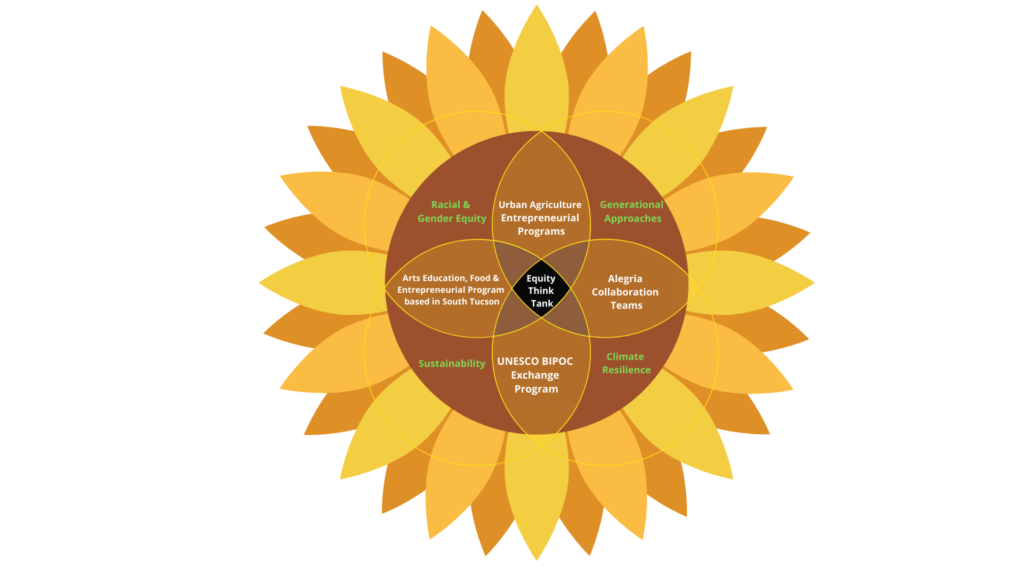

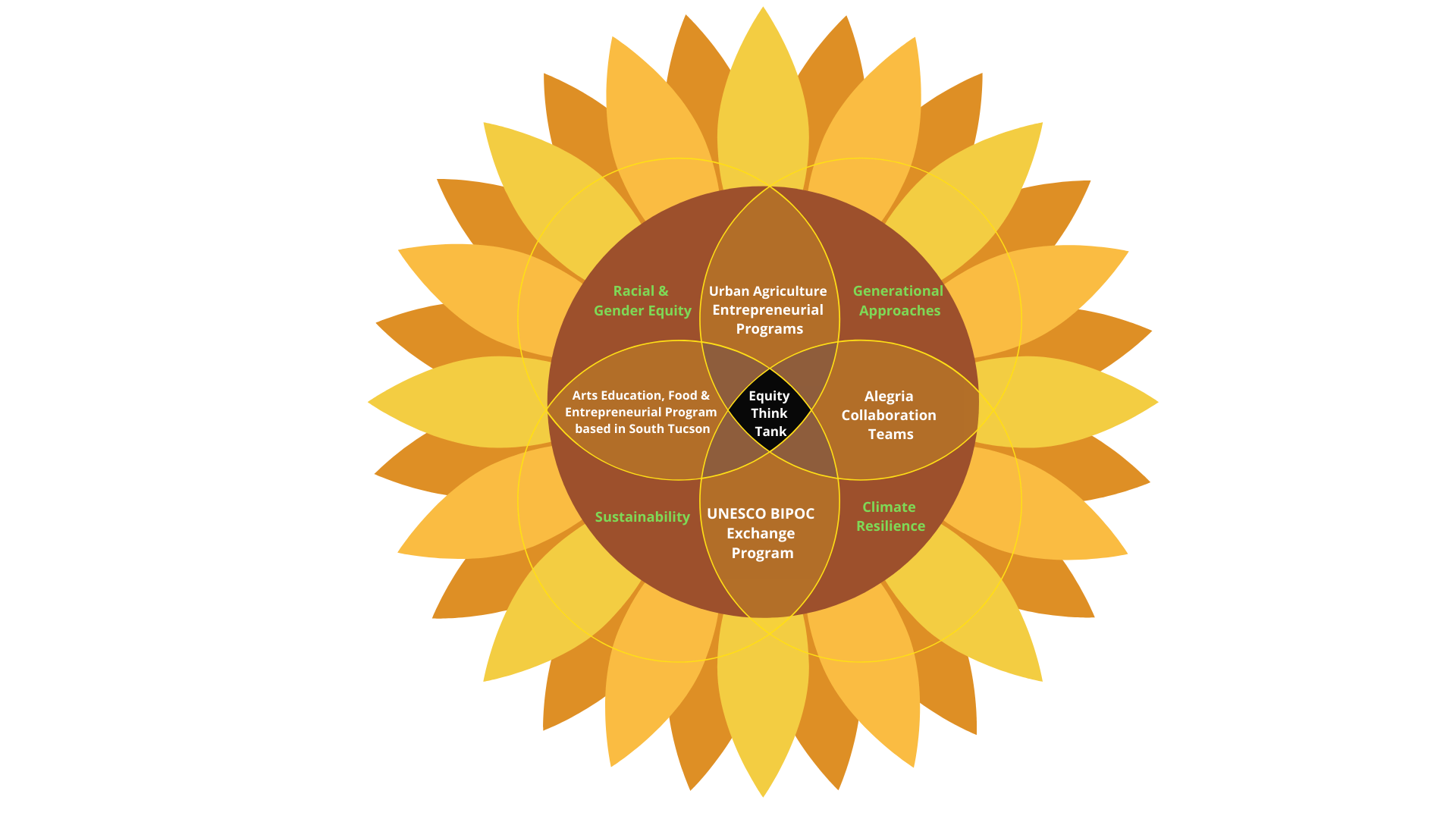

OUR APPROACH
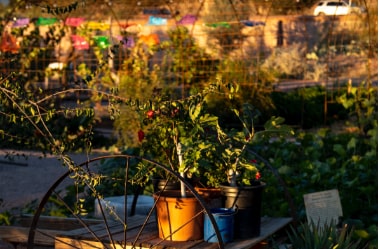

Photo credits: Enrique Noriega
Arts Education, Food and Entrepreneurial Program based in South Tucson
A youth-led effort that addresses food insecurity while documenting and integrating neighbourhood food traditions and knowledge using the Farmers, Ranchers & Gatherers of the Southwest project model.
Two entrepreneurial programs will connect a nationally recognized youth tile mural program (Las Artes) while developing local talent for cooking.
Urban Agriculture Entrepreneurial Programs
Building Backyard Farmers & Makers (training and resources to scale backyard farming for single family and multifamily housing for income patching)
Expanding Community Farms (access to land & resources for niche production and expand regional food economy)
Skilled Labor and Businesses Training (job creation and economic development through scaling permaculture and farming training to services for individuals and businesses)
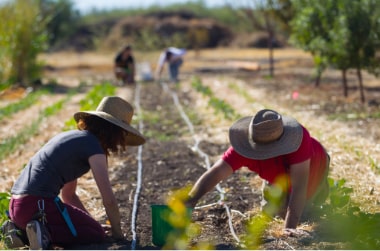


Photo credits: Enrique Noriega



Photo credits: Enrique Noriega
Urban Agriculture Entrepreneurial Programs
Building Backyard Farmers & Makers (training and resources to scale backyard farming for single family and multifamily housing for income patching)
Expanding Community Farms (access to land & resources for niche production and expand regional food economy)
Skilled Labor and Businesses Training (job creation and economic development through scaling permaculture and farming training to services for individuals and businesses)
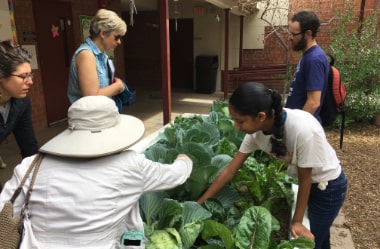


Photo credits: Julie’s Food
ALEGRIA Collaboration Team
Will initiate or expand their existing food system projects and come together with area experts to problem solve and reimagine their approaches.



Photo credits: Julie’s Food
ALEGRIA Collaboration Team
Will initiate or expand their existing food system projects and come together with area experts to problem solve and reimagine their approaches.
UNESCO Cities of Gastronomy BIPOC Learning Exchange Program
Providing connection pathways for practitioners to elevate knowledge sharing and opportunities among three UNESCO Cities of Gastronomy, Tucson, Arequipa, and Naples.
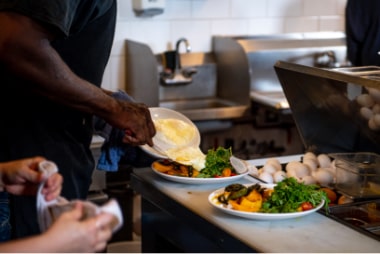


Photo credits: Enrique Noriega



Photo credits: Enrique Noriega
UNESCO Cities of Gastronomy BIPOC Learning Exchange Program
Providing connection pathways for practitioners to elevate knowledge sharing and opportunities among three UNESCO Cities of Gastronomy, Tucson, Arequipa, and Naples.



EQUITY THINK TANK
That brings together all the above organizations to advance policy solutions.



EQUITY THINK TANK
That brings together all the above organizations to advance policy solutions.
CONTRIBUTIONS FROM PARTNERS


“ALEGRIA 2030 is an exemplary model for sustainability practices in our community and one that we encourage participants of LocalFirst Arizona’s SCALE UP project planning program to accomplish: a holistic project with equity centered in the process to ensure better outcomes for all community members as a result.”
Michael Peel,
Statewide Sustainability Director,
Local First Arizona
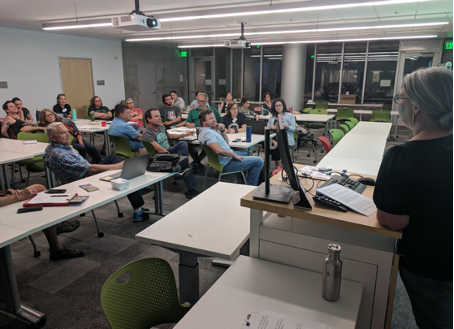

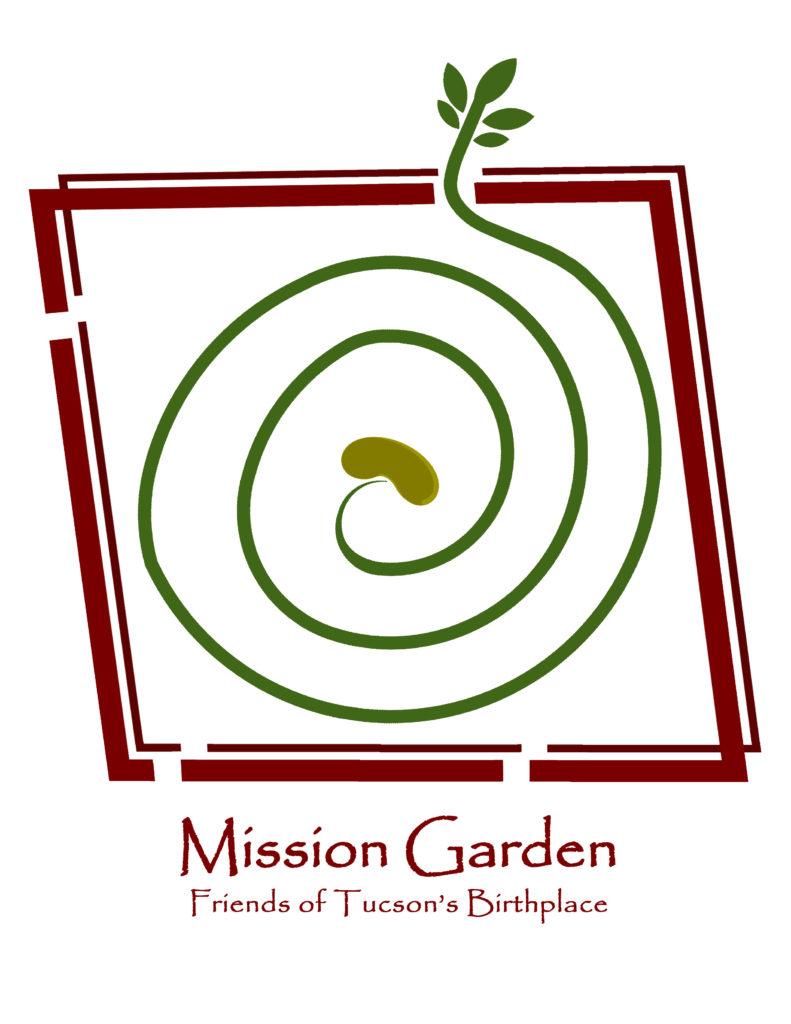

“The basis of our educational template is to exchange and promote agricultural techniques that combine traditional knowledge with modern science.With the help of the Kellogg Foundation, we can continue to provide a window into the past, and inspire practical, local, agricultural methods throughout our semi-arid region.”
“ALEGRIA will increase food security in Tucson by making agriculture jobs more accessible, creating more diversity in farming, and increasing food access in areas impacted by food apartheid. With the help of the Kellogg Foundation, I am confident that ALEGRIA will increase food security and strengthen our local food system.”
Shelby Thompson
Food Systems Program Coordinator, AZ Health Zone
Co-director, Tucson CSA
Steering Committee Head, Pima County Food Alliance
ALEGRIA Advances Livelihoods with Equitable “zero barriers to access” approaches to Grow Resilience in low-income Black, Indigenous and People of Colour (BIPOC) communities through co-created, bottom-up Agriculture partnerships that drive policy.
ALEGRIA Advances Livelihoods with Equitable “zero barriers to access” approaches to Grow Resilience in low-income Black, Indigenous and People of Colour (BIPOC) communities through co-created, bottom-up Agriculture partnerships that drive policy.
